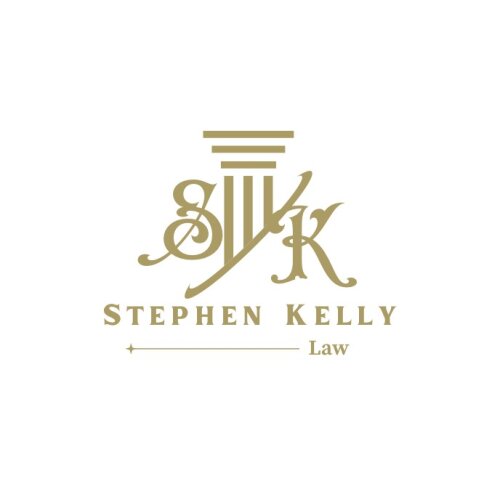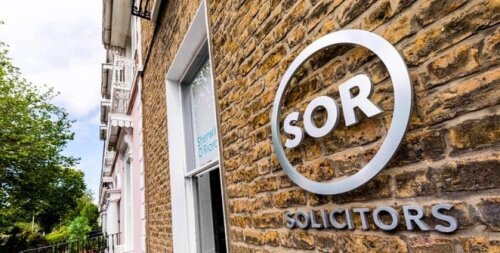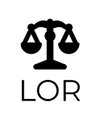Best Landlord & Tenant Lawyers in Dublin
Share your needs with us, get contacted by law firms.
Free. Takes 2 min.
Free Guide to Hiring a Real Estate Lawyer
List of the best lawyers in Dublin, Ireland
About Landlord & Tenant Law in Dublin, Ireland
Landlord and Tenant law in Dublin, Ireland is governed by a comprehensive set of regulations aimed at ensuring fair treatment of both parties in a rental agreement. This area of law covers various aspects such as tenancy agreements, rent controls, tenants' rights, and landlords' obligations. The Residential Tenancies Board (RTB) plays a crucial role in regulating this sector by offering dispute resolution services, registering tenancies, and providing information to both landlords and tenants. Adhering to these regulations is essential for fostering a healthy rental environment in Dublin.
Why You May Need a Lawyer
There are several common situations where individuals may require legal assistance related to landlord and tenant issues in Dublin:
1. Lease Disputes: Disagreements over the terms of a lease agreement can be complex and may require legal interpretation and intervention.
2. Rent Increases: Understanding the legalities of rent hikes and whether they are justified according to local laws can necessitate legal advice.
3. Evictions: Both landlords and tenants may need legal help to understand the legal grounds and processes for eviction.
4. Security Deposits: Disputes over the return or deductions from a security deposit often lead to legal consultations.
5. Property Standards: Ensuring the property meets the required standards and resolving issues related to necessary repairs can require legal guidance.
In these situations, a lawyer can offer valuable advice and represent your interests, ensuring compliance with the law and protecting your rights.
Local Laws Overview
Dublin's landlord and tenant laws cover several key areas:
Tenancy Agreements: All tenancies must be registered with the RTB, and agreements should be in writing, detailing the terms clearly.
Rent Control: Rent increases are regulated by the Rent Pressure Zone (RPZ) rules, capping the amount landlords can hike rent within a specified timeframe.
Tenants' Rights: Tenants have the right to a safe and habitable home, timely repairs, and protection from unfair eviction. They are also entitled to privacy and quiet enjoyment of the property.
Landlords' Obligations: Landlords must maintain the structure of the property, comply with health and safety standards, and address repair requests promptly.
Dispute Resolution: The RTB provides mediation and adjudication services for resolving disputes between landlords and tenants.
Frequently Asked Questions
What is the Residential Tenancies Board (RTB)?
The RTB is a statutory body that governs the rental sector in Ireland. It handles tenancy registrations, offers dispute resolution services, and provides information to landlords and tenants.
Do all tenancies need to be registered with the RTB?
Yes, all tenancies must be registered with the RTB, and it is the landlord's responsibility to ensure this registration within one month of the tenancy's commencement.
What is a Rent Pressure Zone (RPZ)?
An RPZ is a designated area where rent increases are capped to a maximum of 4% annually to control spiraling rents. Dublin is part of this zone.
Can a landlord evict a tenant without notice?
No, a landlord must follow due legal process and provide appropriate notice periods depending on the duration of the tenancy.
How much notice must a landlord give for a rent increase?
A landlord must give at least 90 days' notice before the intended date of a rent increase.
What can I do if my landlord refuses to return my security deposit?
If there is a dispute over the deposit, you can seek mediation or adjudication services from the RTB to resolve the issue.
Who is responsible for repairs in a rented property?
The landlord is generally responsible for structural repairs and ensuring the property is fit for habitation, while tenants must take care of minor maintenance and notify the landlord of any significant issues.
Can a landlord enter the property without the tenant's permission?
Landlords must provide reasonable notice and obtain the tenant's consent to enter the property, except in emergencies.
What should be included in a written tenancy agreement?
A tenancy agreement should include essential details such as the names of landlord and tenant, property address, rent amount, duration of tenancy, and any additional terms and conditions agreed upon by both parties.
How can I resolve a disagreement with my landlord?
You can seek advice and file a dispute with the RTB, which offers mediation and adjudication to resolve conflicts between landlords and tenants.
Additional Resources
Here are some helpful resources for those seeking more information or legal advice related to Landlord & Tenant issues in Dublin:
Residential Tenancies Board (RTB) - Provides information, mediation, and adjudication services.
Threshold - A housing charity that offers advice and support for tenants.
Citizens Information - Offers general information on tenant and landlord rights and responsibilities.
Law Society of Ireland - Can help you find a qualified solicitor specializing in Landlord & Tenant law.
Next Steps
If you need legal assistance for any landlord and tenant-related issues, consider the following steps:
1. Identify Your Issue: Clearly understand the nature of your issue and collect any relevant documents, such as your tenancy agreement, notices, and any correspondence.
2. Seek Initial Advice: Contact organizations like the RTB, Threshold, or Citizens Information to gain a preliminary understanding of your rights and obligations.
3. Consult a Lawyer: If your issue is complex or remains unresolved, consult a qualified solicitor who specializes in landlord and tenant law to provide expert advice and representation.
4. File a Dispute: If necessary, file a dispute with the RTB to seek mediation or adjudication.
By following these steps, you can ensure that your concerns are addressed in compliance with Dublin's landlord and tenant laws, safeguarding your rights and interests.
Lawzana helps you find the best lawyers and law firms in Dublin through a curated and pre-screened list of qualified legal professionals. Our platform offers rankings and detailed profiles of attorneys and law firms, allowing you to compare based on practice areas, including Landlord & Tenant, experience, and client feedback.
Each profile includes a description of the firm's areas of practice, client reviews, team members and partners, year of establishment, spoken languages, office locations, contact information, social media presence, and any published articles or resources. Most firms on our platform speak English and are experienced in both local and international legal matters.
Get a quote from top-rated law firms in Dublin, Ireland — quickly, securely, and without unnecessary hassle.
Disclaimer:
The information provided on this page is for general informational purposes only and does not constitute legal advice. While we strive to ensure the accuracy and relevance of the content, legal information may change over time, and interpretations of the law can vary. You should always consult with a qualified legal professional for advice specific to your situation.
We disclaim all liability for actions taken or not taken based on the content of this page. If you believe any information is incorrect or outdated, please contact us, and we will review and update it where appropriate.
















